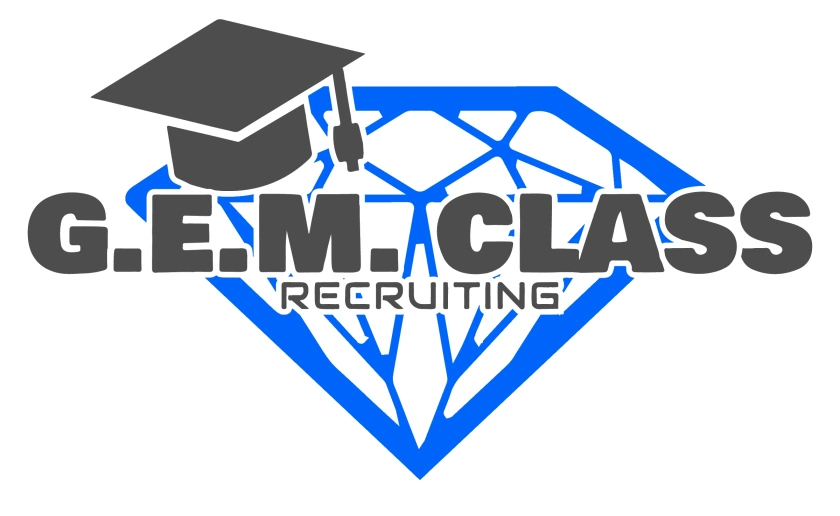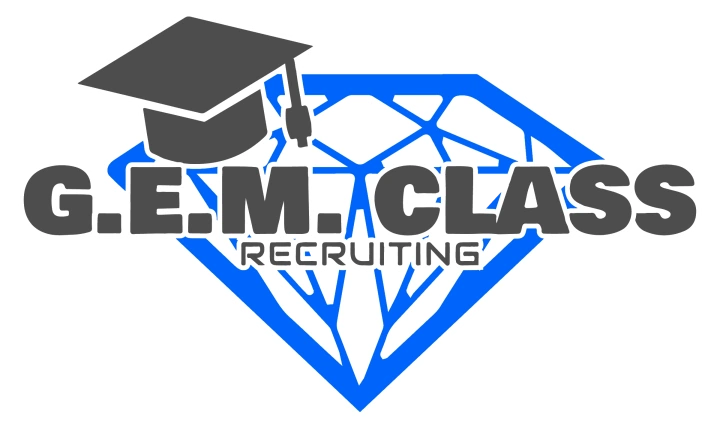HIT. THE. BOOKS.
If you get nothing else from this... if you do not read any further... understand it.
There is NOTHING more important that can create you more opportunities than what you do
in the classroom. Your mom and dad are not wrong. We've all been there and we get it -
the classroom isn't every PSAs cup of tea - but you still have to drink it. Anything
below a 2.3 GPA and you can pretty much kiss NCAA ball goodbye. You have to meet NCAA
eligibility requirements to play NCAA DI, NCAA DII, or NAIA football. Anything below a
2.0 GPA and you're going to find it difficult to get on any field. If you have questions
in regard to your academics, please feel free to reach out. We can guide you through it.
Too often extremely talented PSAs are left hanging because they're a risky investment
for a coach. They only have a certain amount of money to hand out. They will not invest
in you if you do not take the classroom seriously. Recent rule changes also emphasize
grades for programs to remain bowl eligible. If you're serious about playing ball in
college, grades have to be the most important thing to you from this point forward.
Actions speak louder than words. Show these coaches you are for real. If you're not -
there is nothing anyone can do for you (unless you are close with Rebecca Romijn
Stamos).
CREATE YOUR GAMEPLAN
"YOUR" cannot be emphasized enough here. The experience for most Prospective
Student
Athletes (PSA's) will be entirely different. Even if multiple players on your team are
pursuing their opportunities to play at the collegiate level, chances are all of your
journeys will be different. You shouldn't compare anyone else's success or experience to
your situation - nor should you have any negative feelings about yourself because of it.
Your focus should be on your studies, improving your play on the field, and crushing
whatever task you take on next. We're going to focus on you - no one else. Use your
energy to control the things you can. Stars DO NOT matter. Rankings DO NOT matter. The
only list you should be concerned with is the list on the coach's recruiting board that
is in their office at whatever school you wish to attend.
1. KNOW YOUR OPPORTUNITIES
| PROGRAMS BY DIVISION |
| FBS |
FCS |
DII |
DIII |
NAIA |
JUCO/CC |
TOTAL |
| 134 |
133 |
162 |
243 |
97 |
123 |
892 |
| THE NEXT LEVEL - BY THE NUMBERS |
| HIGH SCHOOL FOOTBALL PLAYERS |
1,118,705 |
| NCAA FOOTBALL PLAYERS |
73,712 |
| NCAA FB PLAYERS DRAFTED |
259 |
| % HS FOOTBALL PLAYERS TO NCAA |
6.59 % |
| % NCAA FB PLAYERS TO PROS |
0.023 % |
College football is not for everyone. You need to be realistic in your approach. If you
are going to play in college, you're probably one of the best players on your high
school team. Understanding your opportunities will provide you with the best chance to
find success at the end of your journey. If you're not sure that you have what it takes,
or maybe you're not sure how to even begin to find out - don't worry - you're not alone.
Gather all of your athletic and academic information and start putting yourself a resume
together. Reach out to your high school coach for help. It's key to understand that it
is not your high school coach's responsibility to get you a scholarship. They oversee an
entire team that, in most cases, have over half of your teammates reaching out to them
for help as well. TAKE OWNERSHIP OF YOUR RECRUITING PROCESS. No one
cares more
about your future than you and your family.
2. CREATE AN ONLINE PRESENCE
We also like to refer to this as "building your brand." There is no
place where
recruiting goes on more than online. College coaches no longer have to invest the
resources they used to in traveling around the country, from high school to high school,
trying to identify all of the talent thats out there. More often than not, chances are
that if a coach is visiting a high school, they are there to see a recruit play in
person that sparked their interest after seeing their athletic and academic information
online. Make sure your athletic and academic information can easily be found online by
college coaches to increase your chances of playing at the next level. Social media
accounts can also help you out, but they can hurt you as well. Do not make yourself a
ghost, but be smart with them - keep it clean.
One of the main reasons we started G.E.M. Class was to provide PSAs with a
FREE Player Profile that is live and viewable to all college coaches.
Over 7,000 coaches throughout the NCAA, NAIA, NJCAA, and CCCAA have
profiles with us that allow them to login and
check out our Player Directory. While that is just a tiny part of what we do - take
advantage of the opportunity. Once you sign in, and fill out our recruit form, our
Scouting Director will look over your information. Just like college football is not for
everyone, neither are we. We only work with the best 400 PSAs for each year across the
country, so treat your Player Profile like a resume. Fill in all of the information you
can beyond the required info. A good highlight reel that is put
together professionally
can single handedly make or break you. If you need help with that, let us know if and
when we reach out - or even if we don't - we can take care of it for you! Our Scouting
Director can more easily evaluate your film than he can your contact information. If we
feel like you have what it takes to become a part of our ELITE 400, we will reach out to
you or your family directly and see if you qualify for our FREE Scouting
Evaluation. If
we do not reach out, keep grinding. Things can easily change for you in the future. Your
profile will still be visible to ALL college coaches and they can reach out to you
directly if they like what the see.
3. DO YOUR RESEARCH
Coaches know when they are receiving the same message you sent out to twenty other
coaches right before the one you sent to them. One of the best ways to let a coach know
you're serious about their program is to be personable. Including specifics that are
attractive to you about their program can generate a higher response rate to your
messages. We can help you craft your emails! The only way to write a good one, though,
will inevitably require you to look into their school and/or program - so do your
research. This is a good time to mention that this should be something you WANT to do.
We're talking about your college education. That is something that no one can ever take
away from you. Find a school that will allow you to be successful in life in the event
that your football career ends after college.
4. CONNECT WITH COACHES
Football is all about relationships. Ask any coach you know. Same goes for your chances
of playing at the next level. Build your relationships. Get to know coaches. More
importantly, make sure the coach wants to get to know you. Five star athletes don't
generally choose to go to UNC when they have offers from Alabama, LSU, and Clemson - but
it happens. You want the coach to RECRUIT you. That means he/she will
want to get to
know you and they will do their best to make sure you know (without a doubt) that they
have you and your families best interests at heart. It's truly less common than you
think. Be prepared for these conversations so you know how to communicate effectively.
If a coach called you today - would you know what to ask? What he's going to ask? We can
help you prepare for these things.
JUST GETTING STARTED OR LOOKING FOR GUIDANCE?
RECRUITING GUIDELINES
It is EXTREMELY important to become familiar with collegiate rules and regulations in
order to get the most out of your recruiting process. Understanding how to connect with
college coaches and when it is and is not permissible to do so will give you a huge edge
on the rest of the PSAs that your are competing for a spot with. Most PSAs are under the
impression that recruiting starts their junior year. The biggest mistake you can make,
in the event you want to play NCAA Division I football, is waiting until your junior
year before you start getting to know college coaches. 85% of NCAA DI athletes are
identified by their sophomore year. Coaches have to win to keep their job. In order to
win, they need to recruit the best talent possible. Identifying elite athletes before
other coaches is key to that process. There are numerous 7th graders today that have DI
offers. Do not wait to begin to get your name out there. Below is a table that
identifies what type of communication is allowed between PSAs and college coaches for
each grade level.
NCAA DI
| Middle School/ Freshman Year |
NCAA Publications - Questionnaires, camp flyers, academic publications, and NCAA
educational materials
|
| Sophomore Year |
Private electronic communication - recruiting materials, emails, DMs, & text
messages.
|
| Junior Year |
April 1 through the Sunday before the last Wednesday in June - A college may pay
for a prospective SA and two family members to visit campus.
|
| Senior Year |
July 1 - Contact Periods Only: Coaches allowed 6 off-campus contacts w/ each SA.
1st day of classes: Athletes can take unlimited official visits - 1 per school.
September 1: Coaches can call athletes once per week & can call recruits
unlimited during contact period. Evaluation days: Coaches can evaluate each
recruit 3 times. They can take 1 evaluation per recruit in fall & 2 evaluations
from April 15-May 31. Early Signing Period: December 4th-6th. Regular Signing
Period: February 5th - April 1st.
|
NCAA DII
| Middle School/ Freshman Year |
NCAA Publications - Questionnaires, camp flyers, academic publications, and NCAA
educational materials
|
| Sophomore Year |
June 15 after sophomore year: official visits. Coaches can also
communicate with recruits electronically (via private texts, emails, DM.)
Athletes can receive calls from coaches. Coaches can conduct in-person,
off-campus recruiting contact. Finally, coaches can approach recruit’s coach at
a game, camp, etc. throughout contact periods. Evaluations: No restriction after
SA is finished on field and been released by coach/ responsible party.
|
| Junior Year |
All of the above permissible. |
| Senior Year |
All of the above permissible.
Regular Signing Period: April 1st - August 1,
2025.
|
NCAA DIII
NCAA DIII coaches can contact you day one your freshman year. They do not extend athletic
offers. Instead, if they want you to play for their program, they will put together an
academic package to pay your tuition and guarantee you a roster spot.
NAIA
NAIA does not regulate communication between high school students and their coaches.
There are regulations in regard to visits and tryouts. They also have guidelines for
PSAs who are enrolled at another collegiate institution.
READY TO CONNECT WITH MORE COLLEGE COACHES?
RECRUITING CALENDARS
Nothing raises more questions by PSAs and their families than the recruiting calendars.
The purpose of the calendars are to create a level playing field - in all aspects of the
recruiting environment - throughout each division. More importantly, they are designed
to keep the well-being of the PSA as the priority. The calendars essentially set the
rules and regulations that govern the recruiting process. They specify who can be
involved in the process, when they can be involved, and exactly what type of involvement
they can have. According to the NCAA, "a contact occurs any time a college coach says
more than hello during a face-to-face contact with a college-bound student-athlete or
his or her parents off the college’s campus." While this seems simple, it can be a
complex subject if you are not aware of the terminology and the periods the calendars
are broken down to. If you and your family would like to have a better understanding of
the recruiting calendars, create your player profile and we can go through them with
you. The periods are briefly explained below.
CALENDAR PERIODS
|
Contact Period |
Evaluation
Period |
Quiet
Period |
Dead Period |
Recruiting Shutdown |
| College coaches may call, write, text or email you, and your family. |
Yes |
Yes |
Yes |
Yes |
No |
College coaches may
watch you compete. |
Yes |
Yes |
No |
No |
No |
College coaches may
visit your high school. |
Yes |
Yes |
No |
No |
No |
| College coaches may have face-to-face contact with you and your family |
Yes |
Yes, but only on the college's campus. |
Yes, but only on the college's campus. |
No |
No |
RECEIVE YOUR FREE PLAYER EVALUATION!



